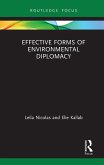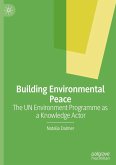Air pollution challenges nations sharing common borders to balance economic needs with protecting citizens and the environment across jurisdictions. By examining landmark cases on the two borders, John Wirth shows how environmental diplomacy, citizen action at the grassroots level, and the role of science, industry, and the law converged, bringing Canada, the United States, and Mexico to the threshold of today's continental approaches to pollutant pathways. Wirth first examines the famous Trail smelter conflict of 1927-1941. This precedent-setting case, which pitted U.S. farmers against the Canadian smelter, resulted in the doctrine that in cases of transborder damage, the polluter must pay. Although the farmers were modestly compensated and the British Columbia-based smelter cooperated to control pollution, Wirth reveals the real significance of the decision: U.S. industries shared with the Canadians a common interest to resolve the case in a manner that would allow them to continue to pollute freely across international borders with minimal regulation. Wirth then turns to the Gray Triangle confrontations of the 1980s, in which the new instruments of the Clean Air Act and cooperative policies developed by the Mexican and U.S. governments established an entirely new climate for citizen action, resulting in the closing of an American smelter in Arizona and the imposition of stricter standards on two Mexican smelters in Sonora. Although the Trail precedent favored industry, the Gray Triangle resolution signaled that the needs of industry and the public interest were now in better balance. Drawing on extensive interviews and previously untapped archives, Smelter Smoke in North America provides new analysis of the development of a North American institutional response to continental air pollution. It chronicles how industry developed a continental perspective in a shared regional space, the mineralized West, and how successful efforts of governments and citizens to protect the environment evolved.
Hinweis: Dieser Artikel kann nur an eine deutsche Lieferadresse ausgeliefert werden.
Hinweis: Dieser Artikel kann nur an eine deutsche Lieferadresse ausgeliefert werden.








